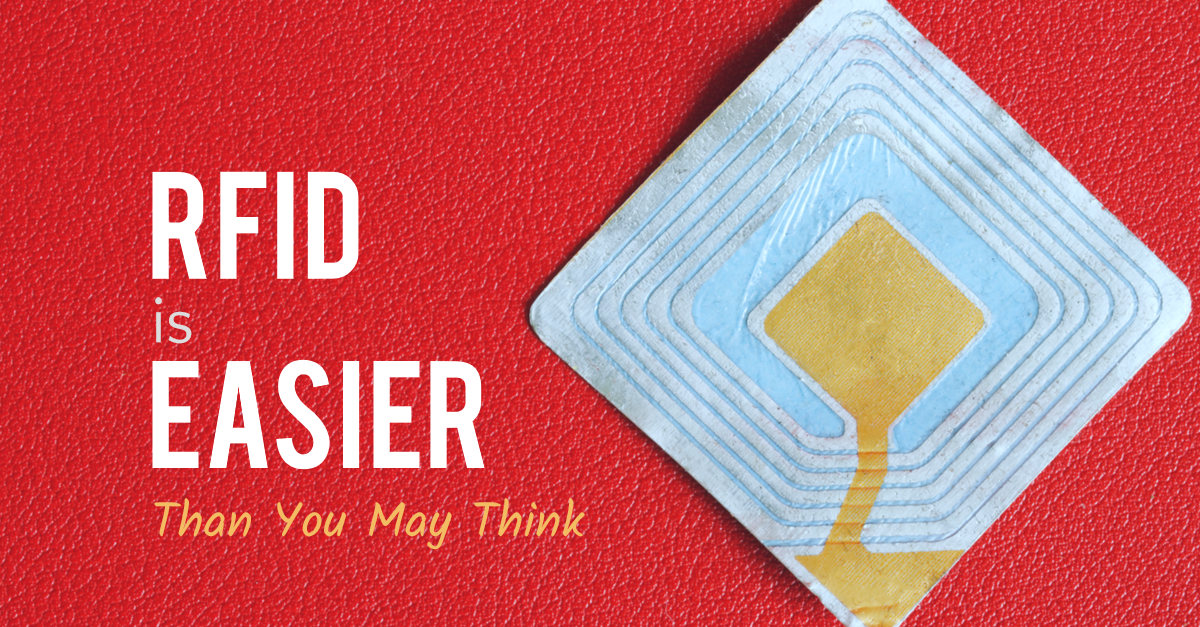It’s taken a long time to finally arrive where it feels like RFID is achieving its intended results. My engineering friends might disagree with me, but I think we’re finally seeing more implementation in production processes (as opposed to pilot operations). Regardless, I think we can all agree that RFID has definitely lagged behind what was anticipated for broad adoption.
While there have been many advances in devices, tags, and implementation approaches over the years since RFID was introduced. And the market forecast for the next five years is expected to grow at over 10% CAGR.
Given all of the potential benefits, why hasn’t RFID taken off? What are the challenges that are stopping organizations from moving forward?
“Computers are useless. They can only give you answers.”
― Pablo Picasso
The Two Cs: Cost and Complexity
A No decision on RFID seems to boil down to two challenges – Cost and Complexity typically.
First, there is Cost. RFID has the reputation that there is a high entry price to get started. It’s not surprising when you look at the immediate investment surrounding the tags, equipment & software. Then there are ongoing costs to support the solution – and even expand it.
The costs of each of these components can vary – depending on your needs and environment. Tags, for example, are offered at lower prices, like 25¢ each. However, you may find that the ones that would work optimally for your products and facilities might be closer to $2 each.
There is also a wide range of costs for the equipment to read and process those tags. Given the variations, it’s easy to get nervous about the potential financial undertaking with RFID.
Second, there is the Complexity of the technology itself.
I don’t know how many discussions I have with “RFID experts” that have quickly migrated to discussions about RAIN, MHz, passive/active, tag options, etc. While they may have good intentions, all of the information and questions can quickly confuse and maybe even scare people off from moving forward.
Throughout my many years in the automation world, discussions still always seem to come back to speeds, feeds, state-of-the-art, etc. And while important, I think that first you need to determine the job to be accomplished – and the associated value (or criticality) of that job.
Ask yourself – once I read the data in the RFID tag, what do I do with it? Where does it go? How is that data used? When you can answer those questions, you can more effectively determine the direction you may want to take regarding RFID.
mobilePLUS Offers a Smart Approach
The weakness in most mobile RFID options has been the lack of available packaged software, the high cost of devices, the effort to implement, or the need for an “ALL IN” approach – or some combination therein.
As we developed our mobilePLUS solution, we spent considerable time making RFID an easy option for you. It can be implemented with some setting changes, no custom programming effort, and to work with your core business systems or ERP.
Coupling this unique software architecture with leading-edge hardware manufacturers like DT Research and AsReader enables our teams to deliver solutions with excellent performance and improved costs – both in products and overall effort. The resulting certified integrated platform of hardware and software also ensures a quick and low-risk implementation.
Starting an RFID solution journey doesn’t have to be an “ALL IN’ investment but can be developed over time. A mobile approach can allow you to slowly move into RFID technology with minimal effort and investment while also providing the ability to grow or even transition to fixed portals as your business case develops. It’s the old crawl, walk, run approach.
“It’s really hard to design products by focus groups. A lot of time, people don’t know what they want until you show it to them”
– Steve Jobs
RFID provides exciting advantages for organizations in reducing costs, effort, and risks in managing your operation. It doesn’t have to be scary or expensive to get started – you just need the right approach.
Are you considering RFID? Let us help you navigate the waters. We would welcome the opportunity to review your situation and discuss how RFID can play a role in your improved operations.




